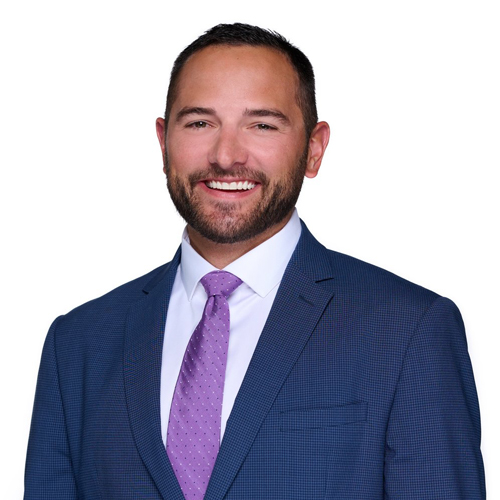While still in your working years, you dream of a relaxing retirement someday. It may seem a long way off, but as someday gets closer, reality starts to creep in and questions come up in your head. Can you afford to stop working? Did you save enough for retirement? And many more…
Millions of people ask themselves these questions as they get older and feel the finiteness of time. There’s no magical age you need to reach that determines your readiness to retire – it’s a personal decision based on serious data. You must feel capable of handling your finances with limited or no additional earned income if you want to enjoy your golden years. For some people, this happens at age 50 and for others at age 80.
Are you retirement ready? Let’s explore the issue…
Have You Saved Enough?
I am sure that you have started saving for retirement. But are you on track with your savings? Do you know exactly what you need to be saving each month to reach your goals? Do you know specifically what your goals are?
These are the foundation questions that need to be answered in order to understand your retirement readiness. These questions are best answered within the context of a comprehensive financial plan. Whether you work with a planner or build a plan yourself, the first step is to answer these questions to see if they are realistic for your situation. Many people experience a serious wake-up call while completing this step.
A popular rule of thumb that can be used to give you a quick estimate of how much you may need to save for retirement is called the ‘Multiply by 25’ rule. This rule works by multiplying your desired annual income by 25. For example, if you want to withdraw $60K a year from your retirement savings, you need $1.5 million in your retirement portfolio ($60K x 25 = $1.5 million).
The next step in building a plan is to understand where your money will come from, how to make it last, and what expenses you anticipate having in retirement. You may be surprised at how much retirement really costs…
Where’s Your Income Coming From?
Income can come from many sources and most people will draw their income from more than one source during their retirement. This diversified approach is wise and reduces the overall risk in your financial plan. A few common places to draw income from include:
- Pensions
- 401(K)s
- Traditional & Roth IRAs
- Life insurance retirement plans
- Social Security income
Once you calculate your estimated future income from each source and add it together, you should have more questions. Is this going to be enough income to pay for the necessities and fixed costs you will have in retirement, like medicare premiums, taxes, utilities, etc.? If not, how big is the gap? Can I bridge that gap with the time I have left to save?
A rule of thumb you can use to figure out how much income you might receive from each source is the 4% rule. This rule guides how much income is reasonable to withdraw from your retirement portfolio each year and maintain a reasonable expectation that your money will last as long as you do. So if you have that $1.5 million in your portfolio, and you take out 4% each year, you end up with the $60K goal we started with earlier. This is the inverse of the ‘multiply by 25’ rule.
Will You Continue to Work?
Many people believe that they will work part-time in retirement, both to keep busy, and to supplement their income in the first few years. In reality, according to the Bureau of Labor Statistics (BLS), only about 1 in 5 retirees actually ends up employed after age 65. There are many reasons for this, including the job market, health concerns, and others.
If you do work, how long will you continue to do so? Have a plan – even though it may change based on your health or even family circumstances, plan the way things are now and how you see them unfolding. Have both a short-term and long-term plan.
If you work, can you pull less than 4% of your retirement savings annually? This stretches your retirement dollars.
What Are Your Expenses?
- Retirement is not a time to let the budget go by the wayside. You need it now more than ever. Ask yourself these questions:
- Where will you live? Can you save money by moving to a less expensive area of the country? Maybe a State without an income tax to save a little from the IRS?
- Will you need a mortgage? Can you refinance today at historically low rates into a mortgage with a term that matches exactly to your planned retirement date?
- Do you have adequate medical insurance? Will you need to bridge a gap between eligibility from your medical plan at work (including COBRA) to Medicare at age 65?
- Do you need money for chronic healthcare issues or Long-Term Care Insurance?
- Have you planned for future healthcare costs? This is the biggest expense for most retirees today!
It’s important to see how your pre- and post-retirement budgets compare. Being realistic here is crucial to ensure you’re adequately prepared.
Ideally, you have taken care of your debt by the time you retire. It’s not a requirement, but it helps. Some debt though may reach into your retirement years, and as long as this is planned for, it can be managed effectively.
Do You Have Health Insurance?
Healthcare is generally the single biggest expense facing retirees today. A study by Fidelity showed that the average 65-year-old, non-smoking couple retiring in 2020 can expect to spend around $280K over the remainder of their lives in healthcare costs. This does not factor in any long-term care costs either. This is why it is so important to specifically have a plan within your plan just for healthcare in retirement.
If you retire before age 65, you may have a health insurance gap to fill until you qualify for Medicare. If you are within 18 months of your 65th birthday, then COBRA may work to fill that gap. Otherwise, you may need to look elsewhere to find coverage, which can be extremely expensive. This is one of the main deterrents to early retirement for Americans.
Medicare is a widely misunderstood retirement benefit. A recent Nationwide Retirement Institute study found that over 70% of Americans don’t fully understand Medicare coverage and over half believe that it is free. Medicare will help with a lot of your healthcare expenses in retirement but it is far from free. Also, while planning out expenses in retirement, remember that if your Modified Adjusted Gross Income (MAGI) is over $87K for individuals or $174K for couples, you will be subject to Medicare surcharges that increase the costs for your healthcare coverage dramatically.
Have you considered long-term care? How will you pay for it should you need it? Long-term care insurance may be something you want to work into your budget if it would deplete your savings to pay for long-term care.
Conclusion
We all dream of getting to retirement and financial freedom as soon as possible, but make sure that the path you are currently on is headed for the destination you truly desire.
Saving enough, calculating your expenses, and estimating the rising costs of healthcare is a great starting point in your retirement calculation. If you haven’t done a retirement readiness health check, consider reaching out to a Certified Financial Planner® to help you consider all your options by simply clicking the button below.













